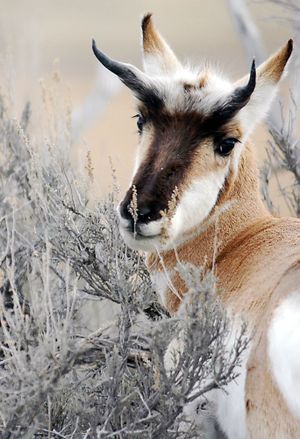Colville Tribe releases 52 Nevada pronghorns on reservation
WILDLIFE -- The Colville Confederated Tribes has released 52 pronghorns on the reservation -- a wildlife reintroduction that would be much more difficult and expensive for the Washington Department of Fish and Wildlife.
The tribe obtained the pronghorns from a January roundup in Nevada and released the prairie speedsters in the southwest corner of the reservation.
The effort is similar to the 2011 pronghorn release on the Yakama Indian Reservation.
Pronghorns, also known as antelope, are the fastest native species in North America.
Pronghorns were extirpated from Central Washington by hunting in the early 1900s. If state fish and wildlife managers wanted to reintroduce the species in the state, they'd have to undergo a lengthy and costly environmental review process, said Rich Harris, department special species manager.
Because they are sovereign nations, the tribes do not have to undergo that rigorous process for releasing the species on their reservations, he said.
"We have not officially endorsed or opposed the release," Harris said.
- See the S-R's report and tribe-provided photos from the release site on Friday.
As in the case with the Yakama pronghorns, when some of the animals inevitably come off the reservation, they are considered game species by state law, Harris said. No state pronghorn hunting seasons have been set.
"You can't just go whack one like you can a coyote," he said. "Pronghorns are a protected species in Washington and the department oversees them if they come off reservation lands.
"Our main interest is in making sure that landowners are not unduly impacted. We want the tolerance and good feelings for these animals to stay.
"From what we've been able to tell in the Yakima area, any occasional concerns with pronghorns coming off the reservation have been temporary."
Last year, a state-tribal cooperative ground and aerial survey found that the 99 pronghorns released by the Yakama's in 2011 had increased to a minimum confirmed count of 132 pronghorns in the region, according to the 2015 survey report. The surveyors found 49 pronghorns on the Yakama Reservation and 57 off on other lands.

